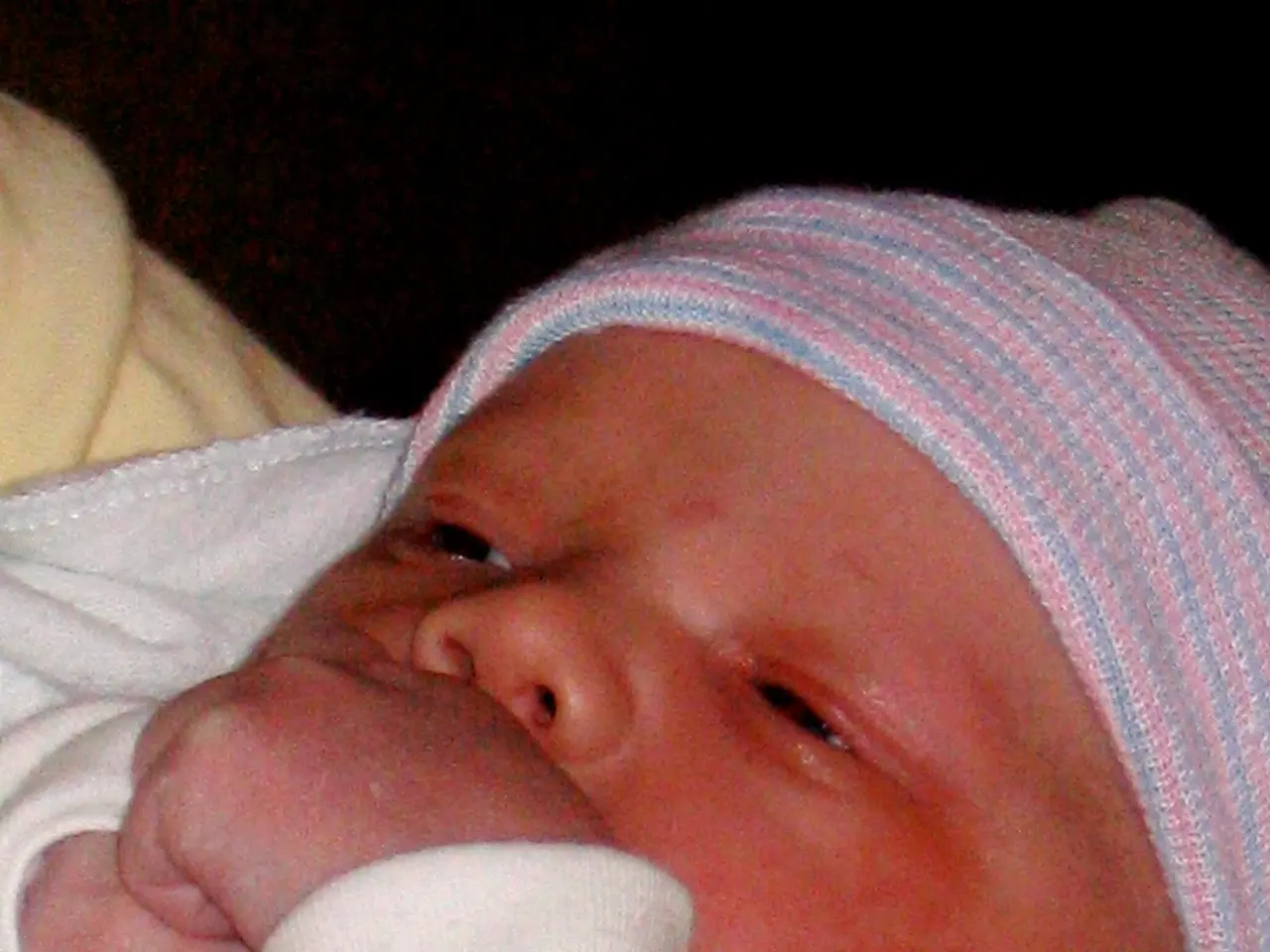Infant Tilting Head: Understanding the Reason and medical consultation timing when necessary
Head Shaking in Babies: Understanding the Norm and the Concerns
Head shaking in babies is a common occurrence, often serving as a harmless and developmentally appropriate behaviour. However, persistent or unusual head shaking may signal underlying medical conditions that require prompt attention.
In the first months of life, babies start deliberately moving their heads, a natural part of their development. This movement can serve various purposes, such as self-soothing, exploration, or helping to fall asleep. Head shaking can also stimulate the vestibular system, supporting balance and environmental awareness development. Sometimes, it can be linked to overstimulation, anxiety, or play behaviour.
However, if the head shaking is repetitive, violent, or accompanied by other symptoms like seizures, unusual muscle tone, or developmental delays, it warrants a medical evaluation. Neurological issues or brain damage could be potential concerns, with signs including seizures, tremors, abnormal muscle tone, or abnormal head/spine shape, suggesting possible brain injury or neurological disorders.
Another serious concern is Shaken Baby Syndrome (SBS), a form of brain injury caused by violent shaking. SBS occurs mostly in infants younger than 6 months due to their heavy heads, weak neck muscles, and vulnerable immature brains. SBS causes severe harm and is a medical emergency.
Myoclonic jerks, brief muscle contractions that may cause a baby to turn their head or neck, are also common in people with epilepsy, including babies. These jerks may not initially be recognized as seizures by parents or caregivers.
Rhythmic movement disorders, conditions involving repetitive movements such as head shaking or body rocking, can also occur. These movements quickly repeat across a few minutes or hours.
Head shaking may also signal a neurological problem, especially if a baby seems unable to control it or has other unusual movements or behaviours. As babies grow, they may start shaking their head to communicate or signal "no" or frustration by 12 months.
Some underlying medical reasons for head shaking may include pain or ear infection. In such cases, doctors may prescribe antibiotics to treat the infection, but they are not always necessary. Sudden head shaking, especially if the baby has a fever or symptoms of a cold, may indicate an underlying medical issue.
Early interventions can help manage severe developmental or neurological problems. Parents or caregivers should consult a doctor if a baby does not meet their developmental milestones, has other symptoms along with the head shaking, seems distressed, or cannot control their head or movements.
It's important to note that some autistic people move their bodies to self-soothe or stimulate themselves, including nodding or shaking their head in rhythmic motions.
In conclusion, while head shaking in babies is generally a normal behaviour, persistent or unusual head shaking could indicate underlying medical conditions. Parents or caregivers should discuss any new behaviours at the baby's next well-child visit. If concerned, prompt medical evaluation is advised.
- Under certain circumstances, the role of a caregiver may involve understanding the norms and concerns associated with head shaking in babies.
- Autism might manifest in an infant through head shaking, used to self-soothe or stimulate themselves.
- Colitis or ulcerative conditions may present symptoms like persistent head shaking, requiring prompt medical attention.
- Asthma, a health-and-wellness concern, can irritate baby's ears, leading to ear infections and subsequent head shaking.
- Newborns may also suffer from ear infections, causing distressed head shaking that could signal the presence of an infection.
- In the realm of science, it is crucial to conduct predictive studies on the causes and effects of head shaking in babies.
- Sleep disturbances in babies may lead to repetitive head shaking, which could signify sleep-related problems.
- Parents and caregivers should not overlook physical fitness and exercise during their parenting journey, as overall health and wellness are integral to addressing concerns like unusual head shaking.
- Mental health, such as depression, can present itself through changes in behaviour, including head shaking.
- Skin care should be part of a comprehensive health routine, as it contributes to the overall well-being of both parents and their babies, ensuring they maintain moral and physical support during challenging times.
- Neurological disorders, like epilepsy, may cause myoclonic jerks that manifest as head shaking or muscle contractions.
- CBD oil is increasingly being studied as a potential treatment for neurological disorders, including head shaking associated with developmental issues.




